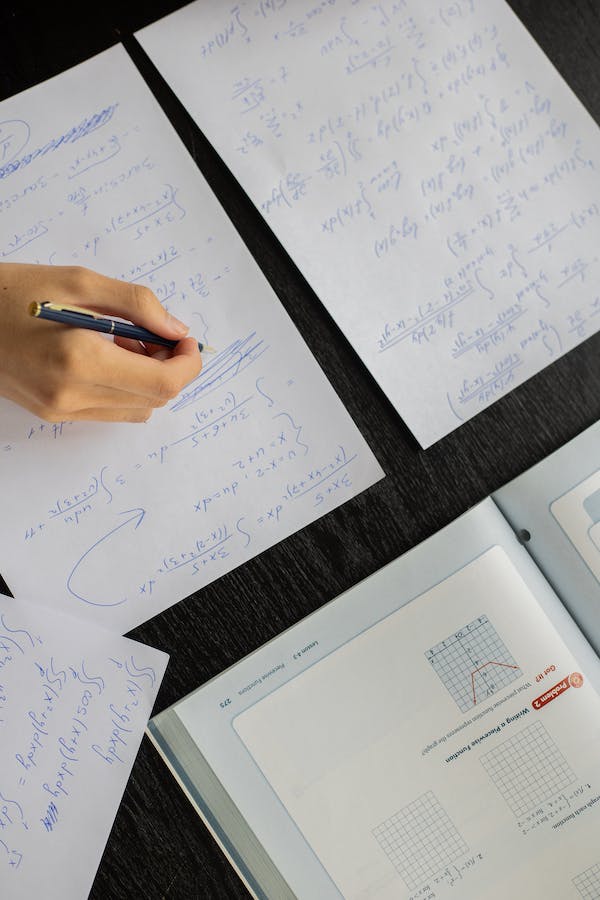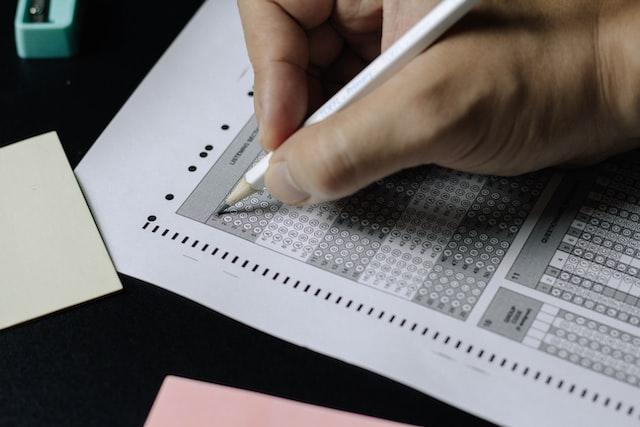
Many students are dissatisfied with the notion that they must write demanding examinations every academic term. These assessments act as a test to determine how effectively they have learned and studied.
A significant part of a student’s educational career is spent in the examination hall. Students write a variety of examinations, depending on where they live and which country or region they come from.
Examinations have been dreaded, loathed, and disliked by pupils for a long time.
As the examination date approaches, the student will feel increased pressure to perform well on the upcoming exam. Before reaching the question paper, most of us are already thinking about why not give an assessment.
Who invented exams?
Who came up with this idea? Why do we have to write exams? How did it all begin?
The origins of the examination can be traced back to China.
The first recorded use of an examination was in China in 165 BC during the Han dynasty. The Chinese imperial civil service exam was conducted every three years to select candidates for government positions.
These exams were based on the Confucian Classics and tested the candidates’ abilities in calligraphy, archery, and horsemanship.
The system was later adopted by other countries in East Asia, such as Japan and Korea.
The first examinations in Europe were held in the Middle Ages to select monks for religious orders.
These tests assessed the candidate’s knowledge of Latin. The first secular exams were introduced in the 14th century by the Italian city-states of Florence and Venice.
These exams, known as “patents,” were held to select public officials. In the 15th century, the French developed a similar examination system known as the “capacities.” This system was later adopted by the English.
The first modern examinations were introduced in England in the 19th century.
These exams, known as “public examinations,” were held to select students for universities. The first public examination was the Oxford Local Examination, introduced in 1858.
The Cambridge Local Examination was introduced in 1869.
These exams were based on the English public school system. In 1871, the Universities of Oxford and Cambridge introduced the first entrance examination for universities.
The first university examination was the Oxford and Cambridge Junior Examination, introduced in 1873. This exam was for students aged 14 to 16.
In the United States, the first entrance examination was the College Entrance Examination Board Test, introduced in 1900. This exam was for students aged 17 to 19.
Read also: Who Invented the Elevator?
Is Henry Fischel who invented the exam?
Henry Fischel (1903-87) was a leading educational psychologist who did much to promote the use of intelligence tests in schools.
He wrote several books on the subject, including The Psychology of Learning (1948) and Human Intelligence (1967).
Fischel was born in New York City and studied at Columbia University, where he obtained a Ph.D. in psychology in 1928.
He taught at Columbia and at the City College of New York before moving to the University of Illinois, where he was a professor of educational Psychology from 1930 to 1967.
Fischel’s main contribution to education was his promotion of intelligence testing in schools.
He argued that intelligence tests could be used to identify talented students who would benefit from special education programs.
He also claimed that intelligence tests could be used to identify students who were likely to drop out of school.
Fischel’s ideas were controversial, and his work was criticized by many educational psychologists. However, his ideas had a significant impact on the development of intelligence testing in schools.
Read also: How Many U.S. Presidents Have Been Assassinated
What Was The Purpose of The First Exams?

The origins of exams trace back to ancient China, where they served the purpose of selecting individuals for government and civil service roles.
The inaugural recorded instance of formal exams was the Imperial Exam during the Sui dynasty in 605 AD.
These assessments aim to evaluate an individual’s knowledge, skills, and comprehension of specific subjects.
The evolution of exams continued into the modern era, with standardized testing emerging in the 19th century.
In England, exams were first introduced in 1806 to evaluate candidates for Her Majesty’s Civil Service.
The concept of exams as we know them today took shape in the late 19th century, thanks to the inventive mind of American businessman Henry Fischel.
Fischel devised exams to gauge students’ comprehensive understanding of subjects and their ability to apply knowledge in practical scenarios.
What Was The Format of The First Exams?
The initial exam formats were predominantly oral, taking the form of questions and answers, disputation, or viva voce.
The introduction of written examinations didn’t occur until 1702 at Trinity College, Cambridge.
Notably, the first recorded official exam in history was the Imperial Exam in China during the Sui dynasty in 605 AD.
This exam transitioned from an oral to a written format, evaluating candidates on their knowledge of Confucian classics and literary composition.
Over time, the exam expanded to cover diverse subjects, including mathematics and law.
In England, exams made their debut in 1806 to assess candidates for Her Majesty’s Civil Service.
Similar to the Imperial Exam, these assessments were conducted in writing, evaluating candidates’ knowledge across various subjects.
The evolution of exam formats has continued, encompassing written, oral, and online modalities in contemporary settings.
What are the types of exams?

There are a variety of different types of exams, each designed to assess a different set of skills or knowledge.
Aptitude tests
Aptitude tests are a type of assessment that aims to measure an individual’s ability to learn or perform a specific task.
They are commonly used in the selection process for training programs or apprenticeships, as they provide insights into an applicant’s potential to succeed in the role.
Aptitude tests typically cover a range of topics and skills and may be administered in a written, oral or practical format. The format of the test will depend on the skills being assessed.
Achievement tests
Achievement tests are a type of assessment that aims to measure an individual’s level of knowledge or skill in a particular area.
They are commonly used in schools and universities to assess students’ progress and to identify areas where further study is required.
Achievement tests typically cover a specific subject area and are administered in a written format.
Psychometric tests
Psychometric tests are a type of assessment that aims to measure an individual’s cognitive abilities and personality traits.
They are commonly used in the selection process for jobs and courses, as they provide insights into an applicant’s suitability for the role or program.
Psychometric tests typically cover a range of topics and skills and may be administered in a written, oral or practical format. The format of the test will depend on the skills being assessed.
Intelligence tests
Intelligence tests are a type of assessment that aims to measure an individual’s intellectual abilities and potential.
They are commonly used in the selection process for jobs and courses, as they provide insights into an applicant’s suitability for the role or program.
Intelligence tests typically cover a range of topics and skills and may be administered in a written, oral or practical format. The format of the test will depend on the skills being assessed.
Personality tests
Personality tests are a type of assessment that aims to measure an individual’s personality traits.
They are commonly used in the selection process for jobs and courses, as they provide insights into an applicant’s suitability for the role or program.
Personality tests typically cover a range of topics and skills and may be administered in a written, oral or practical format. The format of the test will depend on the skills being assessed.
Read also: Who Invented the Potato Chip
How Did The Concept of Exams Spread to Other Countries?

The concept of exams spread across different countries through a historical evolution that reflects diverse cultural and educational influences.
China
The pioneering use of examinations began in ancient China with the Imperial Examination during the Sui dynasty in 605 AD.
This extensive system aimed to select individuals for crucial government positions based on their performance in written exams.
England
England introduced exams in 1806, focusing on evaluating candidates for Her Majesty’s Civil Service.
The examination system further developed in the 19th century, with universities like Oxford and Cambridge adopting standardized testing.
United States
Henry Fischel, an American businessman and philanthropist, is credited with inventing the concept of exams in the late 19th century in the United States.
His examinations aimed to assess students’ comprehensive knowledge and practical application.
India
Exams were introduced in India in 1853, reflecting the influence of colonial educational systems.
The examination approach gained prominence as a formal means of assessing academic proficiency.
Other countries
The late 19th century witnessed a global adoption of the modern examination system, incorporating standardized written assessments.
This shift was influenced not only by the practices in China, England, and the United States but also by a broader international focus on standardization and formalized evaluation methods.
Conclusion
The history of the exam was pretty much straightforward. Fischel’s main contribution to education was his promotion of intelligence testing in schools.
He argued that intelligence tests could be used to identify talented students who would benefit from special education programs.
He also claimed that intelligence tests could be used to identify students who were likely to drop out of school.
Fischel’s ideas were controversial, and his work was criticized by many educational psychologists. However, his ideas had a significant impact on the development of intelligence testing in schools.
Exams have been used for centuries to assess students’ knowledge and skills. Today, there are a variety of different types of exams, each designed to assess a different set of skills or knowledge.
Exams are an important part of the education process and can be used to identify areas where further study is required.
Thank you for reading this article. I hope it was informative and helpful. Please feel free to leave a comment below if you have any questions or suggestions.



